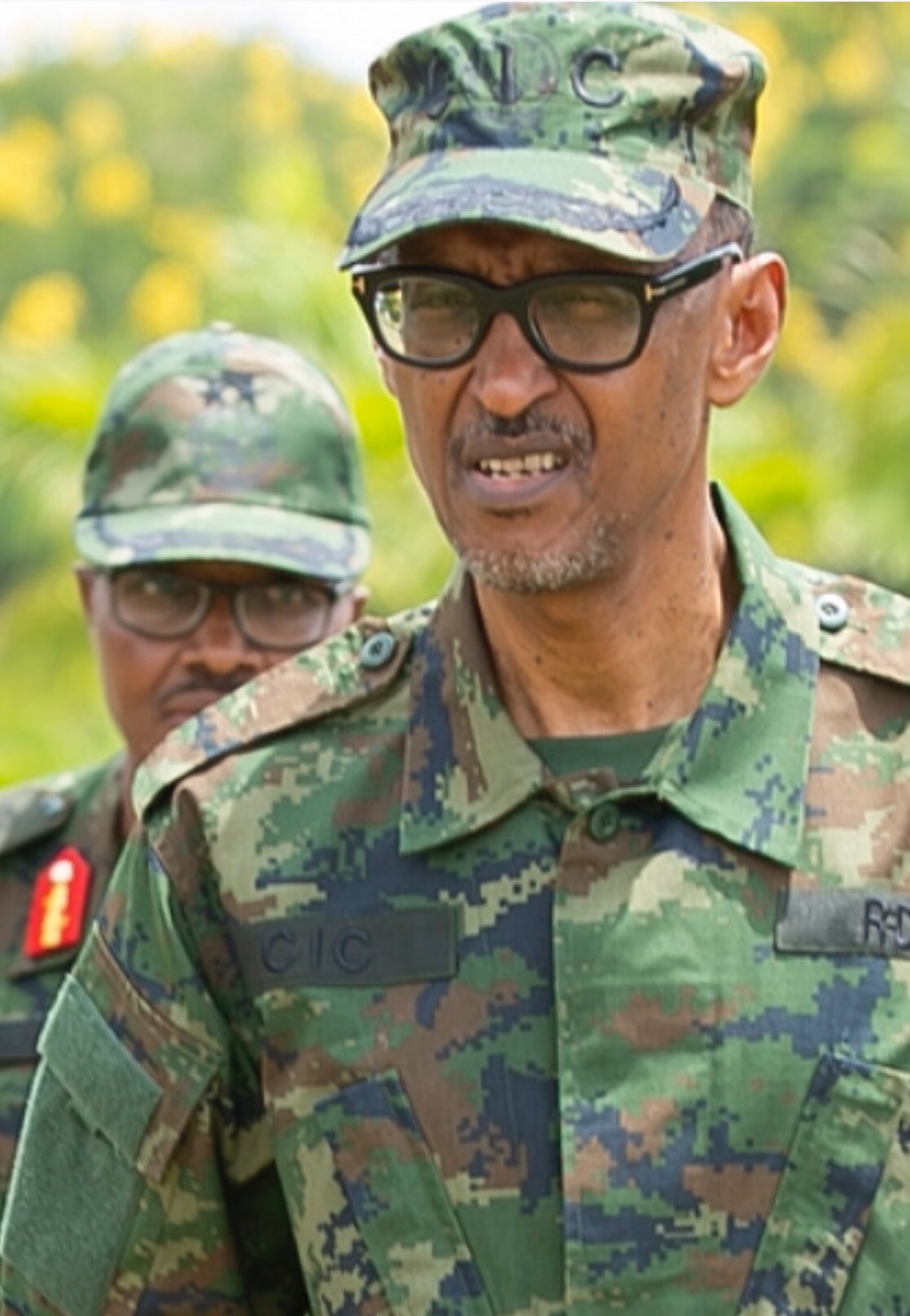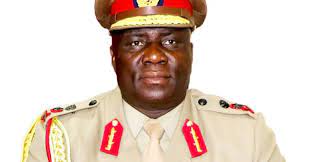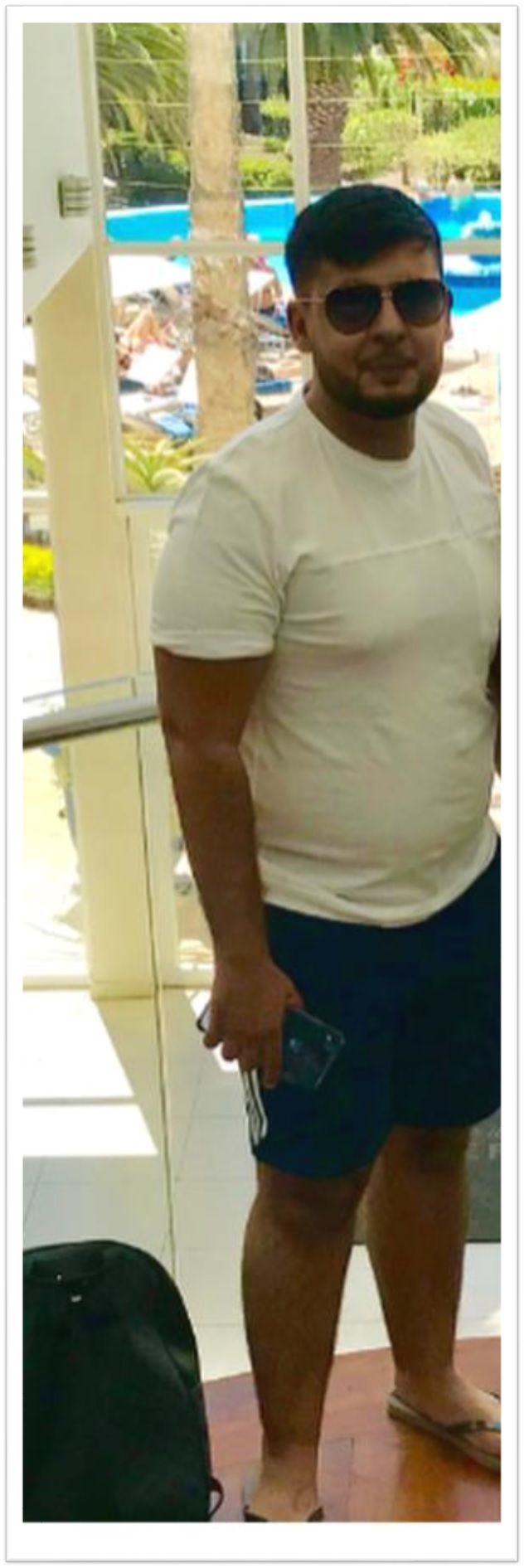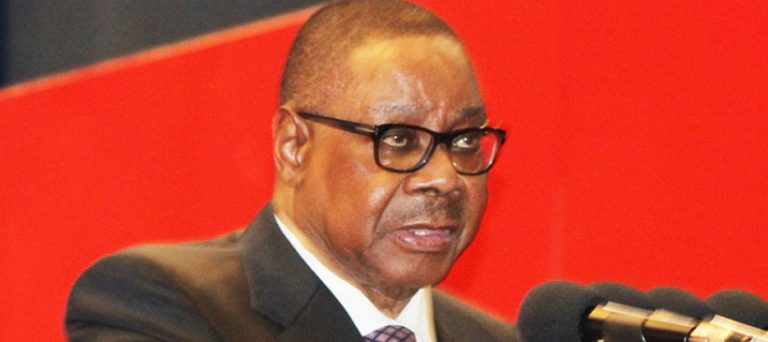…Refugees fear unexplained murders
BY PIJ REPORTER
In October 2019, Rwanda-born Augustin Barabeshya was sleeping inside his house at Malawi’s Dzaleka refugee camp—home of some 52 000 refugees and asylum seekers from the Horn of Africa and beyond—when an unidentified and an unspecified number of men entered the room. They strangled him to death.
Four years earlier, Jerome Habiyambere was shot dead in Lilongwe, the capital of one of the most peaceful nations on earth, Malawi on the 13th July 2015.
The two deaths, now allege members of the Rwandese community in Malawi, are related and interlinked.
Both, they say, were murders carried out by agents of the government of Paul Kagame which in recent years has been accused of carrying out assassinations on foreign soil including the killing of an exiled Rwandan opposition politician Seif Bamporik who was shot dead in Cape Town in February this year.
The killing scene of Bamporik suggests the shooting was part of a robbery, but the party Bamporik headed—the Rwanda National Congress (RNC)—refuses to accept that explanation.
In 2014, Rwanda’s former intelligence chief and NRC founding member, Patrick Karegeya, was murdered in a hotel room in Johannesburg.
Another RNC founding member, former Army Chief General Faustin Nyamwasa was shot and wounded in Johannesburg in 2010. The attacks caused a huge diplomatic row between South Africa and Rwanda in 2010 with South Africa expelling three Rwandan diplomats.

After Karegeya’s death, President Kagame, while officially denying any involvement, issued a stark warning to those rebelling against his rule. “You can’t betray Rwanda and not get punished for it. Anyone, even those still alive, will reap the consequences. Anyone, it’s a matter of time.”
Over the years, Kagame’s opponents have been targeted in countries as diverse as Mozambique, Uganda, Kenya, Belgium, Sweden, and the United Kingdom.
Now the Rwandese community in Malawi has submitted to PIJ a list of 12 people—including Augustin Barabeshya and Jerome Habyarimana—it fears have been murdered –violently but discreetly and silently—by the government of Rwanda on Malawi soil for a period dating as back as 2019.
Neighbouring Zambia’s share of mysterious deaths
Critics say mysterious killings of former Rwandese refugees have continued across Africa in a related fashion. Just last week a Burundian refugee was assassinated in Kabangwe area 10 miles away from Lusaka in what has been suspected as a mistaken identity.
In reaction, the Burundian neighbours living in the same vicinity spoken to in separate exclusive interviews that they suspect that the target could have been a former Rwandan refugee who also drives a similar vehicle that the victim was driving and also lives in the same neighbourhood.
Zambia24 reports that before this latest killing in Lusaka, several mysterious deaths and disappearances of people critical of Rwanda’s government have taken place both in Rwanda and outside Kigali where the opponents have gone to seek refuge.
A Fearful Jean Claude resettled in the US
Veteran journalist and trainer Edem Djokotoe in 2006 through the column SOUL TO SOUL which was the mainstay of Zambia’s defunct newspaper that became Zambia’s media flag carrier The Post first wrote about the killings in earnest.

He wrote that when he first met Jean-Claude about eight years of his time of writing, he must have been about 24 years old, maybe older, and had a ‘hunted look about him, like a man afraid to even trust his own shadow’.
“The way he cast furtive glances around during conversation gave you the impression of a man driven either by a deep sense of fear and by an intense paranoia,” he wrote, saying he kept saying he was a hunted man on the run.
He says when a friend of Jean-Claude was found murdered one day in one of the compounds in Lusaka, the possibility that he could have been telling the truth all along slowly dawned on Edem and that’s how Jean-Claude dropped out of sight never to be seen again.
He says a year or so later, Edem got a phone call at around 0520 hours on Christmas Day, and at the other end of the line was Jean-Claude calling from Cleveland, Ohio US to wish them a Merry Christmas.
Edem then went to explain that Jean-Claude is a Rwandese refugee whom his together with his wife befriended by chance.
“His parents and his siblings were killed in the bloodbath History will remember as a genocide in the tiny central African state. When the bloodshed started, he was at university. Can’t remember what he said he was studying, but when we met survival, not tertiary education, was the main thing on his mind. But for some reason he felt unsafe, even in a refugee camp,” wrote Edem.
He further narrated that Jean-Claude’s fears of the likelihood of an untimely death at the hands of a death squad were heightened when Rwandese President, Paul Kagame came to Zambia, and shortly afterward, his friend was murdered, forcing him to flee Zambia for a safer haven.
At the time of Edem’s column entry events suggested that Rwandese refugees in Zambia at that time has every cause for alarm as figures showed that there were less than 4,000 Rwandese refugees living in Zambia, with 1,000 living in Lusaka in 200 households.
Within the period of six months back in 2006 25 of them had been targets of armed attack. Five of them have been killed in what the Rwandese community said they were not random acts of violence but part of a carefully orchestrated plot to exterminate them systematically.
The regularity of several such murders, not to mention the manner in which they have been carried out, convince members of the Rwandese refugee community in Lusaka that these killings are not coincidental and that they are part of a sinister plot that could probably have been hatched in and orchestrated from the country they left behind.

They feel that the 1997 Extraction Treaty between the Zambian and Rwandese governments and the repatriation campaigns of 2002 were premature because neither addressed the pervasiveness of the insecurity that hung menacingly over their heads like a storm cloud.
“For instance, how was it possible for Agnes Ntamabyariro, a former Rwandese Justice Minister to be kidnapped from Zambia in 1998 and, days later, find herself incarcerated in a prison in Kigali, strangely at a time when there was an Extraction Treaty in place between Zambia and Rwanda?” writes Edem.
Photojournalist ordeal
The situation is worse in Zambia, according to a Rwandan photojournalist Jean Mandela who has been on the run for close to three decades now.
In an interview with PIJ from Zambia, Mandela says on 2nd January 2013, around 1940 hours, he was attacked by five gunmen armed with AK47 who opened fire on him and was left for dead.
“I laid down pretending to be dead and that’s how they got convinced they had murdered me,” he says.
He says as Rwandan citizens, they are at the mercy of security apparatuses in countries where they have sought refuge. Those countries need to provide protection to them, otherwise, their lives as human beings are never respected looking at the hundreds of his compatriots who have been killed in different countries.
“At least the South African government has tried to protect us by hunting down our killers and we hope other countries need to emulate this,” said Mandela.
“Those countries have enough resources to investigate these killings so that the culprits face the wrath of the law. They can even collaborate through the information exchanges in the region, to find a solution about these endless killings,” he added.
List of the assassinated by DW Human Rights Organisation

Ntamuhanga Cassien
A list of other mysterious killings under suspicious circumstances as compiled by the DW a leading Human Right Body includes but is not limited to Ntamuhanga Cassien, a Rwandan journalist who disappeared in Maputo last May after being taken into custody by Mozambican police and has not been heard from since.
DW reports that the captors could hand over the journalist to the Rwanda authorities.
The South African police treated the killing as a robbery.
A week before his murder, Bamporiki had led a memorial service for Rwandan opposition activists killed worldwide.

Abdallah Seif Bamporiki
Anselme Mutuyimana, the assistant to Victoire Ingabire, president of the opposition United Democratic Forces (FDU-Inkingi) party, was found dead in the woods in 2019. The year before, Mutuyimana had been freed from a six-year prison sentence for “political activism.”
This was followed by Jean Damascene Habarugira an opposition politician who disappeared after being called to a meeting with an officer responsible for local security. A few days later, authorities called Habarugira’s family to collect his body from a local hospital.
Illuminee Iragena, an opposition activist went missing in 2016 and has not been seen since.

Patrick Karegeya, a former Rwandan intelligence chief was found dead in a hotel room in South Africa where he fled in 2007 after being accused of plotting a coup against President Kagame.
In 2012, Theogene Turatsinze, former head of the Rwanda Development Bank was found dead in 2012 in a river near Maputo, days after he went missing. Before he was fired from his position, Turatsinze was believed to have taken with him to Mozambique a list of clandestine payments made by top Rwandan government officials.
A year before in 2011, Charles Ingabire, a Rwandan reporter who founded Inyenyeri Newssite, which was highly critical of Rwanda’s government was shot and killed in Uganda, where he lived as a political refugee.
Before him, in 2010, Jean-Leonard Rugambage, another journalist, was shot dead after he published an online article about the attempted murder of a former army chief, Lieutenant-General?Faustin Kayumba Nyamwasa.
In the same year, Andre Kagwa Rwisereka, deputy chairman of Rwanda’s Democratic Green Party was found murdered and partially beheaded in Rwanda in 2010.
Similarly, Seth Sendashonga, a moderate ethnic Hutu involved in the post-genocide unity government with survived an attempt on his life while in exile in Kenya, but was subsequently killed by unknown gunmen in 1998.
Former intelligence official Theoneste Lizinde was also found dead in Nairobi, Kenya, in 1996.
More Killings in Malawi
The community in Malawi alleges that Rwandese spies who integrated into their community are carrying out the killings.
Those include a lady who was stabbed to death in Blantyre, a man who was shot dead at Chinsapo in Lilongwe, a man hacked to death using panga knives in Blantyre, a man who was poisoned at Mchesi in Lilongwe, a man who was killed in Area 25 in Lilongwe, who was murdered with daggers in Lilongwe, a man poisoned in Blantyre, a victim of gunshots at Tsangano in Ncheu, a watchman killed at St Francis Catholic Parish in Kanengo Lilongwe, a refugee strangled at Dzaleka Refugee Camp in October 2019, an asylum seeker stabbed to death in Nkhotakota on the 29th March 2020, a man killed in Mzuzu on the 4th April 2020.
The PIJ also received pictures too gruesome to publish of some of the alleged slain refugees.
Dzaleka Camp officials could not comment on the murder of Barabeshya with Camp Manager Mr Namakwa saying he can’t recall the details of the incident. “There are over 50 000 refugees. I cannot recall that incident.”

A member of Rwandese Community speaks on spate of alleged assassinations
Two refugees based at Dzaleka confirmed details of Barabeshya’s murder—all saying rumour of Rwanda’s hand in his death has circulated in the refugee camp for years.
“These are stories we live with and hear all the times. People have the names and numbers of the spies,” said the refugee. “We had seen these assassinations in Belgium, in South Africa, Mozambique and in Malawi too is happening.”
Speaking in an interview, the spokesperson for the Rwandese community in Malawi, Leopard Bantubino urged Malawi government to investigate the claims, saying members of the community are living in fear.
“We have heard reports of assassinations in other countries and people are also saying this is happening in this country. We would like Malawi government to investigate these claims especially allegations that the country has many spies for the Rwandan government who are responsible for these crimes,” said Bantubino.
He added the community has been informed that part of the activities of the spies including fermenting conflict between the local communities and refugees so that Malawi expels most of the Rwandese in the country.
“We are worried because we fled war and some of us carry traumatic experiences. Our children were born here and we have found peace here and it appears we are being haunted here and they want to find a way to force us back to a country we fled from,” said Bantubino.
Deepening security ties

In July this year, Rwanda’s Inspector-General of Police (IGP) Dan Munyuza visited in Malawi and officially held discussions with his counterpart George Kainja, ostensibly, to reinforce the two forces’ cooperation and explore more areas of partnership against transnational organised crimes.
Officials said the visit was in line with previous cooperation pacts—focusing on joint training, joint operations, tracking and exchange of criminals—signed mutually by both countries, according to a statement released by the Rwanda National Police on July 26.
But the move dampened the mood among the Rwandese community in Malawi and stocked anxiety.
For decades, the refugee community, including those who fled the Rwandan genocide in 1997, had been living freely across the country but in April—prior to the visit by the Rwandan police chief—the government ordered that all refugees who had settled in cities and towns across the country immediately return to the highly congested Dzaleka refugee camp.
According to the Rwandese community in Malawi, Rwanda has established a network of spies in the country which includes those carrying out the assassinations. Some of the spies have Rwandan national passports but some include recruits of the Rwandese diaspora including citizens of western states such as Belgium.
Here in the country, some are operating what appears to be successful enterprises including beverage manufacturing, nightclubs, bars, and others. The majority of the poisoning involves the use of a substance known in the Rwandese language as “utuzi twa Munyuza” meaning “Munyuza’s water” named after a top Rwandese security officer allegedly in charge of assassinations.

When contacted for comment, Malawi Minister of Homeland Security Richard Chimwendo Banda, refused to comment on the matter, citing the sensitivity of the matter.
“I don’t comment anything to do with the security of the country in the media,” said Chimwendo.
PIJ could not speak to the Rwandese government but according to a statement All.Africa.com attributed to the Rwanda police chief, IGP Munyuza, when he visited the country, the deepening of relations is part of efforts to tackle terrorism and resolve other destabilising negative forces on the continent.
He, however, observed that a strong foundation for cooperation has well been laid and that it is now the time to “move from commitment to action.”
This, he said, is the right moment to meet because, like in other parts of the world, the East and the Southern Africa regions are threatened by the growing radical terrorist groups operating and causing havoc in the region.
“We are happy that today, we re-emphasized and re-committed ourselves to working more closely together especially in training in all our training schools and colleges.”
He added, “It is our resolve and shared belief that in this globalized era, cooperation is inevitable to deal with transnational and organized crimes such as terrorism and cybercrimes affecting our continent.”
Munyuza also reiterated Rwanda’s readiness to walk the joint policing journey.







